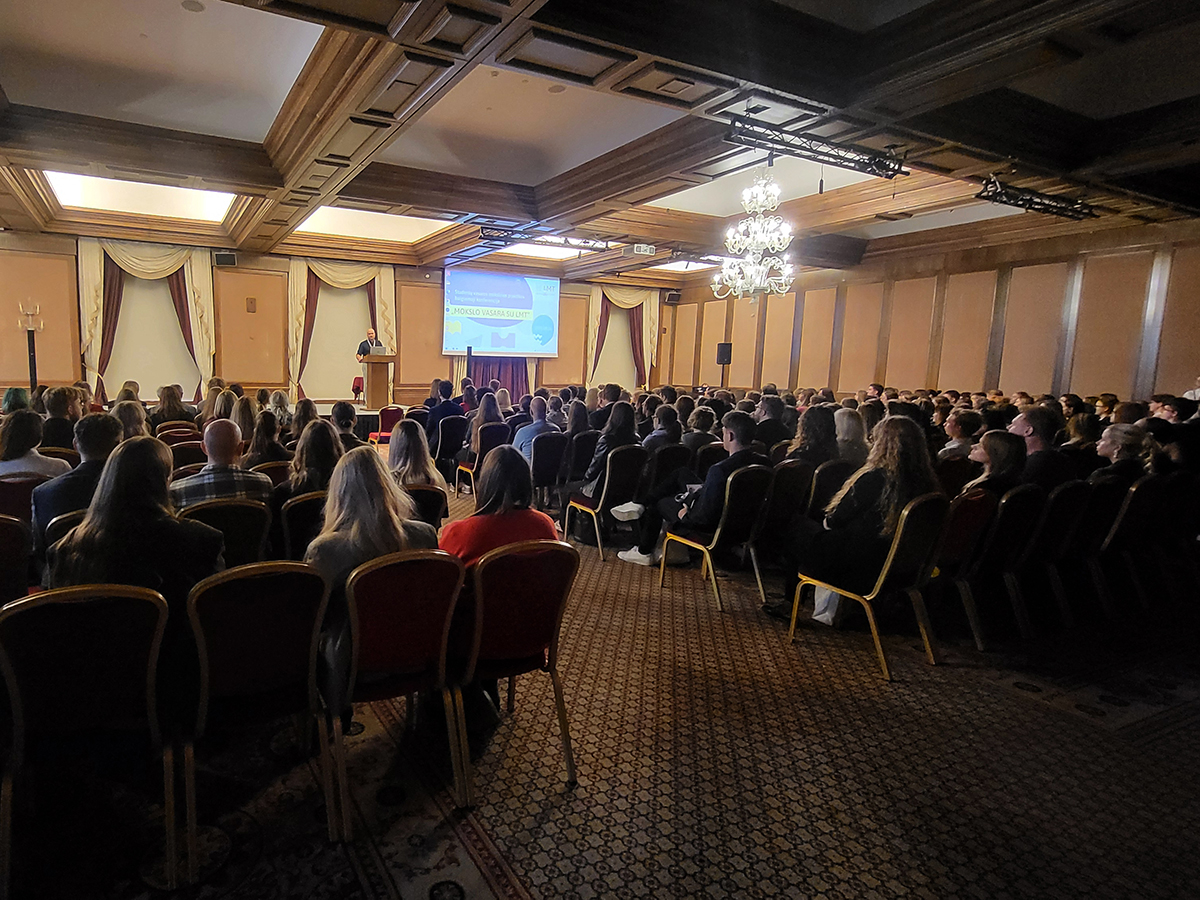
The Student Summer Scientific Internship funding programme initiated by the Research Council of Lithuania (RCL) provided an exceptional opportunity for 313 Lithuanian and international students to engage in scientific activities, deepen their knowledge, and improve their practical skills. The essence of this initiative is to enable students to develop purposefully, collaborate with experienced scientists, gain valuable experience, and start their careers as scientists.
This year, students from all study cycles (first, second, and integrated studies, except for the final year) whose weighted average of all subjects studied in the last semester is not less than 8.0 were eligible to participate in the internship.
The Kaunas Faculty of Vilnius University (VU KnF) has been allocated €20,800 in funding from the Research Council of Lithuania (RCL) to implement five internship projects.
On August 26, Vilnius hosted a student summer internship conference, organised by the Research Council of Lithuania (RCL) and entitled "Science Summer with RCL 2025." The results of the internships carried out in July and August were presented during the conference. Five students who chose to do their summer internship at the Kaunas Faculty of Vilnius University also gave presentations at this event.
It is pleasing that RCL's summer scientific internship programme is already well known among foreign universities, and that the internship topic “Sustainability progress: data-driven decision making for the circular economy” has attracted the interest of a first-year Master’s student of the study programme “Data Science”, Milad Torabi, studying at Sapienza University of Rome (Italy). This practical project is led by the Senior Researcher Dr Mahyar Kamali Saraji (VU Kaunas Faculty, Institute of Social Sciences and Applied Informatics).
"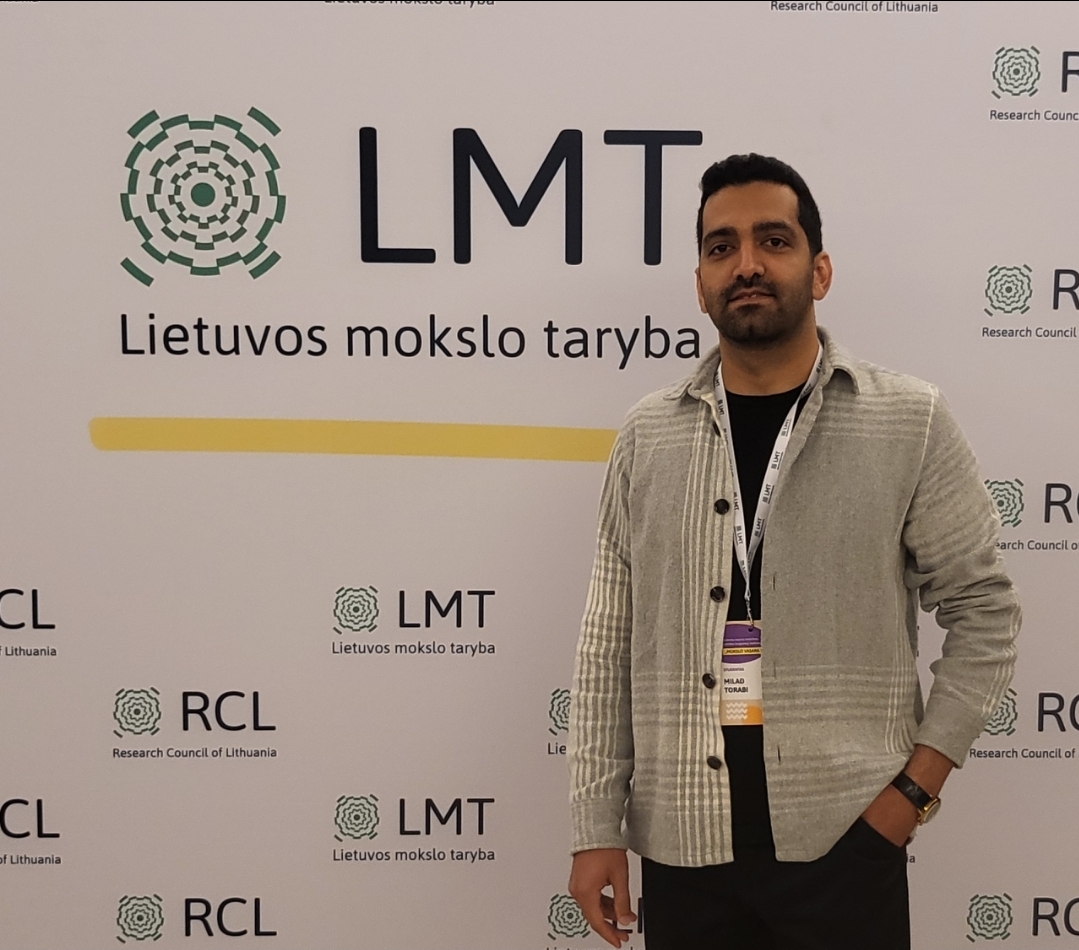 My summer internship at Vilnius University has been an incredibly valuable and rewarding experience. The project I worked on not only allowed me to apply my academic knowledge in practice but also gave me the chance to explore new methods and perspectives that enriched my understanding of the field. I found the work engaging and worthwhile, sharpening my research skills and boosting my confidence in tackling complex challenges. I strongly encourage future students to apply for this opportunity, as the call provides a supportive environment, meaningful collaboration with experts, and a unique platform to grow both personally and academically. Overall, the internship was absolutely worth participating in, and I am grateful for its positive impact on my academic journey," says M. Torabi.
My summer internship at Vilnius University has been an incredibly valuable and rewarding experience. The project I worked on not only allowed me to apply my academic knowledge in practice but also gave me the chance to explore new methods and perspectives that enriched my understanding of the field. I found the work engaging and worthwhile, sharpening my research skills and boosting my confidence in tackling complex challenges. I strongly encourage future students to apply for this opportunity, as the call provides a supportive environment, meaningful collaboration with experts, and a unique platform to grow both personally and academically. Overall, the internship was absolutely worth participating in, and I am grateful for its positive impact on my academic journey," says M. Torabi.
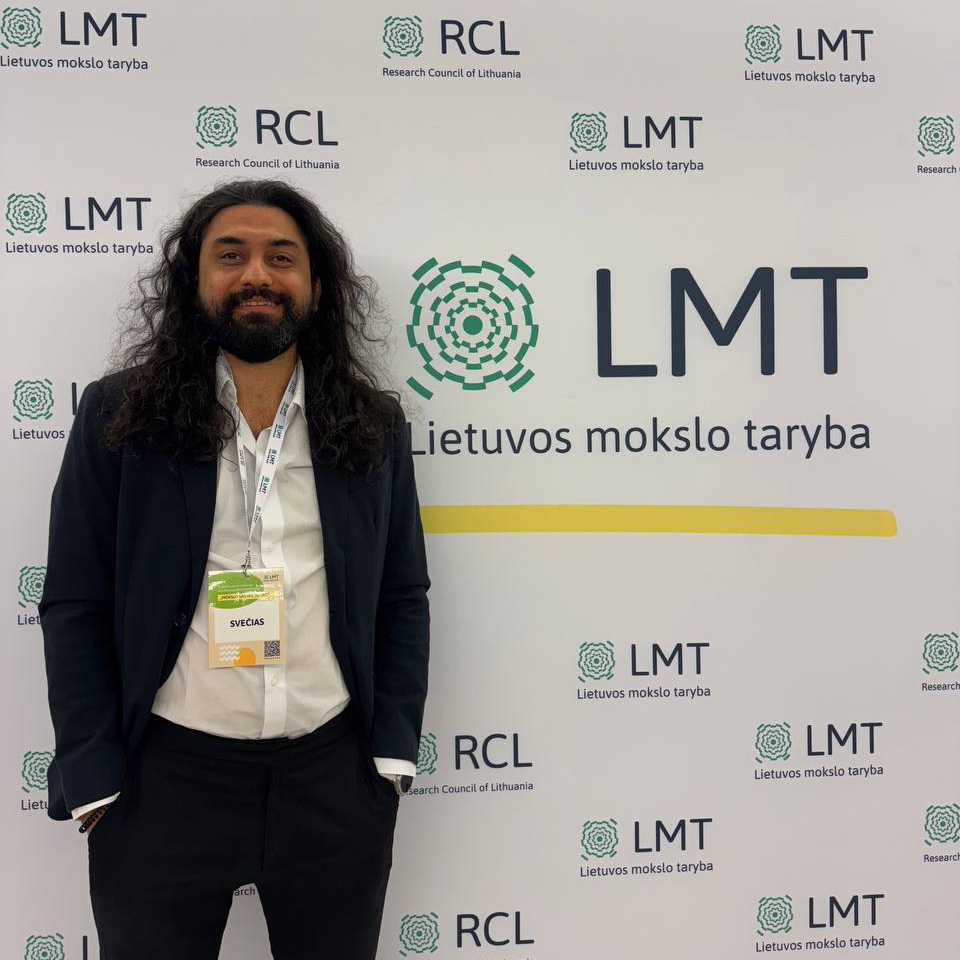 "This internship was a valuable and enriching experience for both the student and me as a supervisor. It allows the student to engage in real research work, develop critical thinking, and strengthen academic writing, data analysis, and independent learning skills. For me, it was rewarding to support a motivated intern and see his progress over a short but intensive period. Additionally, for the organisation, the internship helped build connections with emerging researchers and contributed to our overall academic activity. For future supervisors, I suggest setting clear expectations and providing regular feedback, as this greatly enhances the learning process. Overall, the internship scheme is an excellent initiative that benefits all parties and helps bridge the gap between education and research practice,” Dr. M. K. Saraji shares his thoughts.
"This internship was a valuable and enriching experience for both the student and me as a supervisor. It allows the student to engage in real research work, develop critical thinking, and strengthen academic writing, data analysis, and independent learning skills. For me, it was rewarding to support a motivated intern and see his progress over a short but intensive period. Additionally, for the organisation, the internship helped build connections with emerging researchers and contributed to our overall academic activity. For future supervisors, I suggest setting clear expectations and providing regular feedback, as this greatly enhances the learning process. Overall, the internship scheme is an excellent initiative that benefits all parties and helps bridge the gap between education and research practice,” Dr. M. K. Saraji shares his thoughts.
Karolina Ubartaitė, a third-year student of the Bachelor's degree programme Lithuanian Philology and Promotion: Content Creation and Marketing at VU Kaunas Faculty, chose the topic “Non-Normative Expression in Rap Music Lyrics” for her internship. The supervisor of this project is Associate Professor Dr Eglė Gabrėnaitė (VU Kaunas Faculty, Institute of Languages, Literature and Translation Studies).
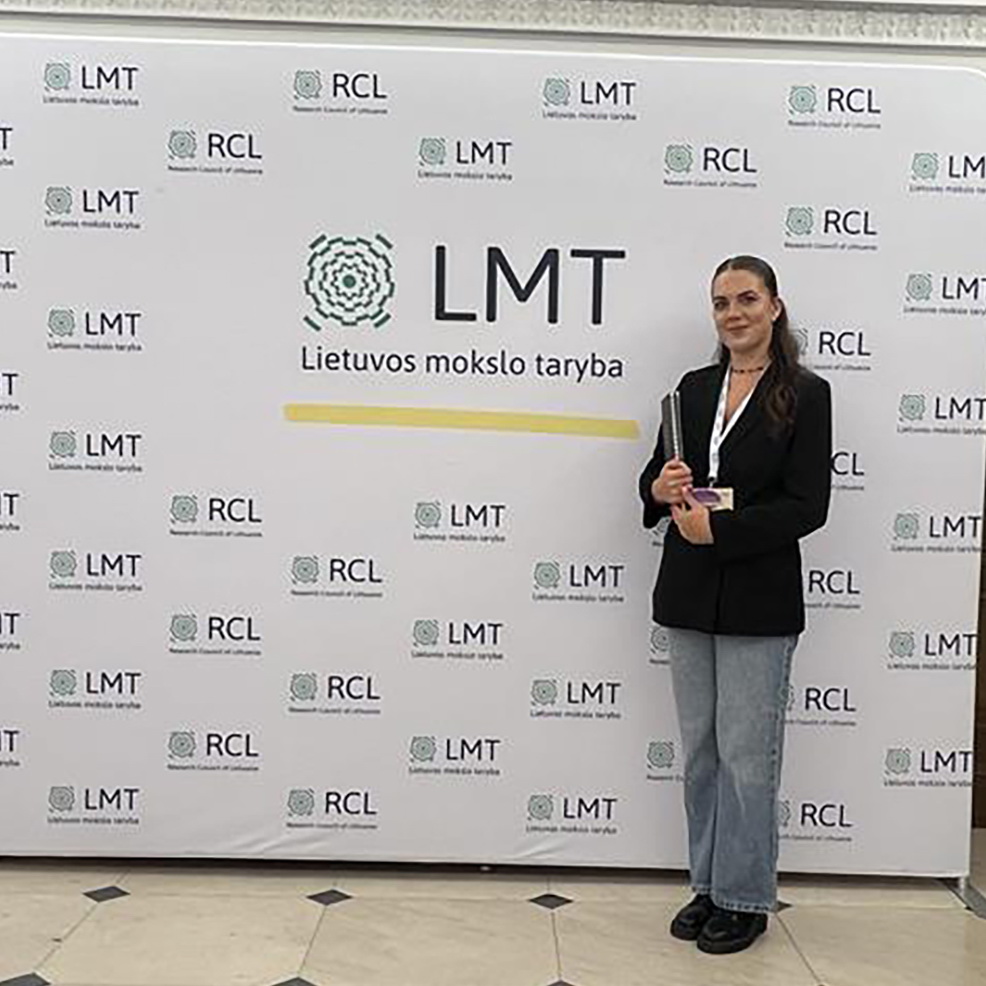 The study aimed to analyse the characteristics of non-normative vocabulary found in the lyrics of Kastytis Sarnickas-Kastetas’ rap music album “Kruvino pusplyčio paslaptis” (Eng. “The secret of the bloody half-brick”) (2023). During the project, a theoretical basis for the study was formulated, cases of non-normative vocabulary in rap song lyrics were analysed, and general conclusions were presented. The results of the study reveal trends of linguistic non-normativity in discourse and allow us to consider the motivation and impact of the creators' choices. Sociocultural topics characterise rap texts, so it is possible to identify the current issues of Lithuanian discourse reflected in the content of the texts (social cohesion, public safety, emigration, harmful habits, etc.),” says Assoc. Prof. Dr E. Gabrėnaitė.
The study aimed to analyse the characteristics of non-normative vocabulary found in the lyrics of Kastytis Sarnickas-Kastetas’ rap music album “Kruvino pusplyčio paslaptis” (Eng. “The secret of the bloody half-brick”) (2023). During the project, a theoretical basis for the study was formulated, cases of non-normative vocabulary in rap song lyrics were analysed, and general conclusions were presented. The results of the study reveal trends of linguistic non-normativity in discourse and allow us to consider the motivation and impact of the creators' choices. Sociocultural topics characterise rap texts, so it is possible to identify the current issues of Lithuanian discourse reflected in the content of the texts (social cohesion, public safety, emigration, harmful habits, etc.),” says Assoc. Prof. Dr E. Gabrėnaitė.
Raminta Počepavičiūtė, a third-year student of the Economics and Management Bachelor's degree programme at the Kaunas Faculty of Vilnius University, chose the topic “The impact of digital technologies on work and employment” for her summer scientific internship. The supervisor of this project is Associate Professor Dr Ilona Kiaušienė (VU Kaunas Faculty, Institute of Social Sciences and Applied Informatics).
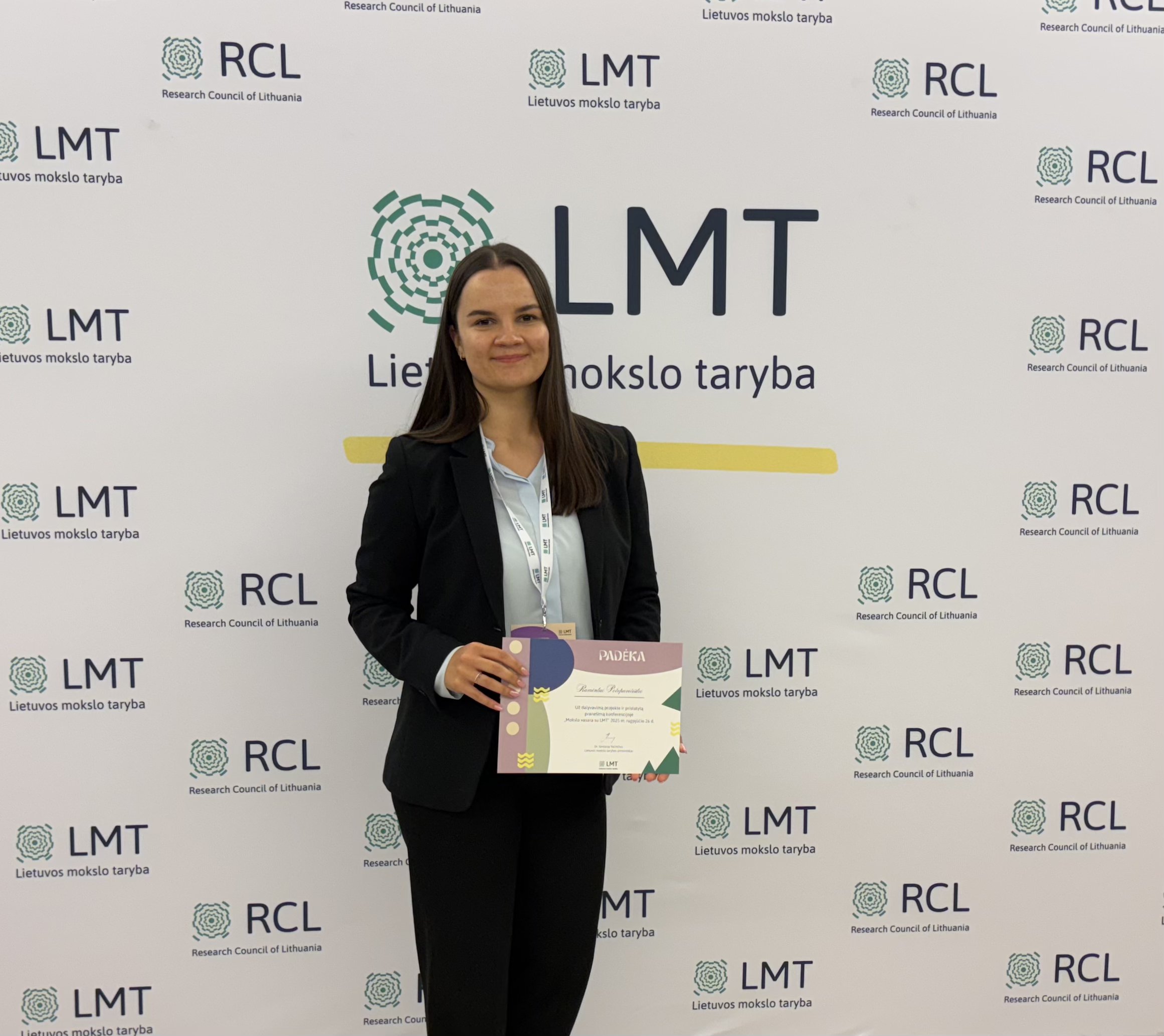 “This experience was extremely valuable to me, not only because of the knowledge I gained, but also because of my personal growth. The internship helped me improve my public speaking skills and overcome my fear of speaking in front of an audience. I noticed that I was asking questions more confidently, showing interest, and admitting that I do not know something, which is a natural part of the learning process. I gained more self-confidence, openness to new ideas, and inspiration to continue delving deeper into my chosen field. I would recommend this internship to other students because it is not only a great opportunity to learn, but also to grow and make new connections,” rejoices R. Počepavičiūtė.
“This experience was extremely valuable to me, not only because of the knowledge I gained, but also because of my personal growth. The internship helped me improve my public speaking skills and overcome my fear of speaking in front of an audience. I noticed that I was asking questions more confidently, showing interest, and admitting that I do not know something, which is a natural part of the learning process. I gained more self-confidence, openness to new ideas, and inspiration to continue delving deeper into my chosen field. I would recommend this internship to other students because it is not only a great opportunity to learn, but also to grow and make new connections,” rejoices R. Počepavičiūtė.
“The aim of the summer internship for the third-year student of the Economics and Management study programme, Raminta Počepavičiūtė, was to determine the impact of digital technologies on work and employment. The student analysed and summarised the importance of digital technologies and their positive and negative impact on the labour market. After examining statistical data, she found that digital technologies significantly impact work and employment across Europe, driving both growth and structural change in the labour market. A significant contribution by the student was made in conducting quantitative research. Raminta Počepavičiūtė’s survey revealed that a higher assessment of the ability to use new digital technologies is related to the frequency of use of these technologies. The summer internship was rewarding for the student in many ways: she had the opportunity to take on the role of a researcher and developed her R&D skills, including analytical and critical thinking, creativity, and complex problem solving, as well as the ability to apply quantitative analysis methods and communication and information technologies. She strengthened her skills in working with the SPSS software package, which includes various statistical analysis methods and data analysis visualisation tools, and shared her insights at the conference "Science Summer with RCL" organised by RCL,” says Assoc. Prof. Dr I. Kiaušienė.
The first-year student of the Economics and Management study programme, Eglė Jaraitė, chose the topic “The impact of sustainability communication on consumer decisions” for her summer scientific internship. The supervisor of this project is Professor Asta Mikalauskienė (VU Kaunas Faculty, Institute of Social Sciences and Applied Informatics).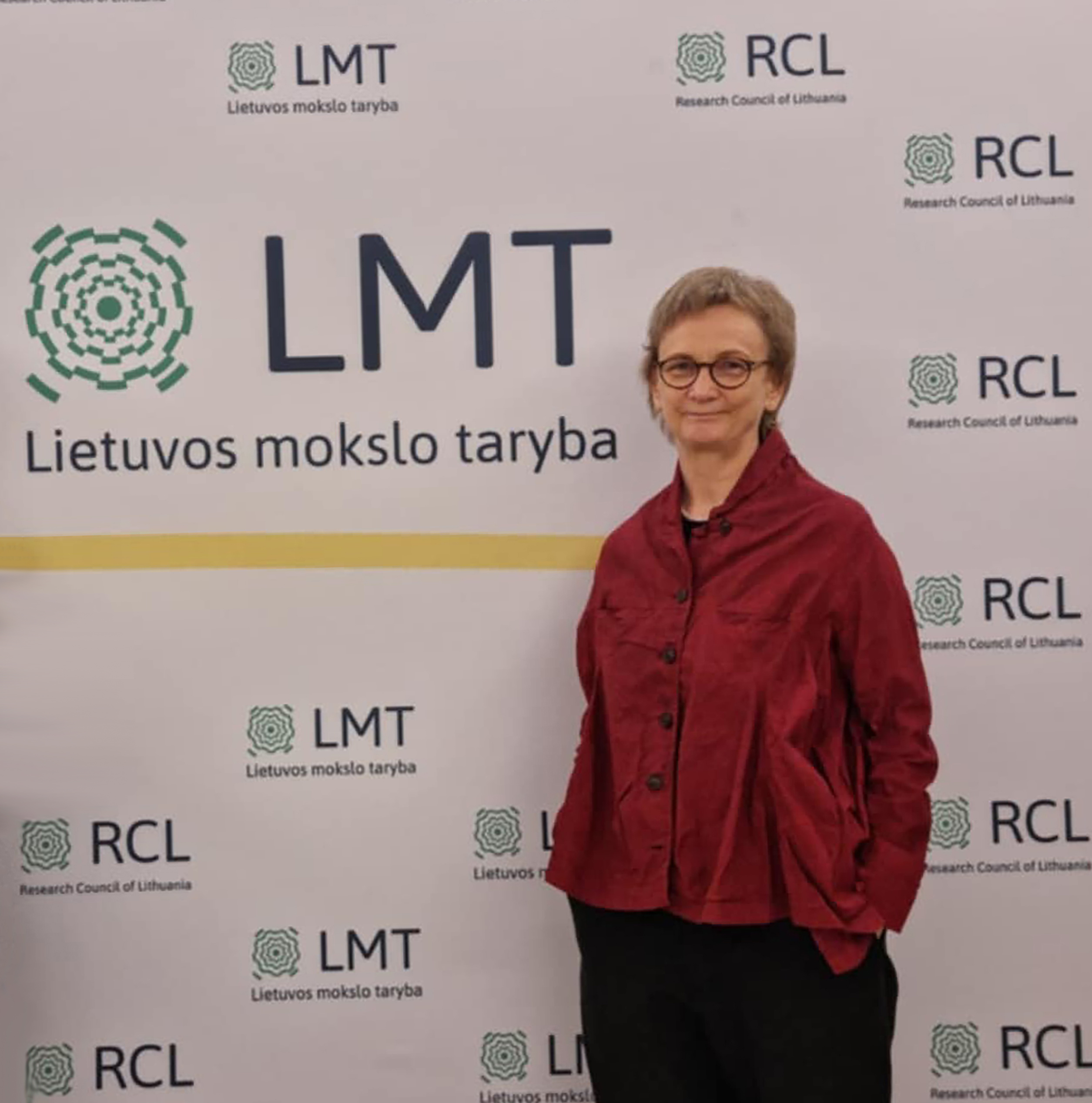
“Due to the ever-increasing climate change and its consequences, as well as emerging environmental problems, both businesses and society are looking for more sustainable solutions to mitigate the effects of climate change. Sustainability communication has become one of the main ways to shape consumer behaviour and promote responsible consumption. However, the question remains as to how effective this communication is, how consumers respond to it, and what factors determine its impact on consumer decisions.
During her summer internship, the student conducted a detailed analysis of scientific literature on this topic and a qualitative study assessing consumer attitudes and reactions to different forms of sustainability communication. The study results were presented at a student scientific conference organised by RCL, and a scientific article based on them is being prepared.
Having participated in the conference, I can say that it is an excellent and well-organised event that draws attention to young people and shows them opportunities in academic activities. It was delightful to observe youthful maximalism, which should be the driving force in every country's society! For most participants, these were their first steps, fascinating for some, more challenging for others, but for everyone, it was a new beginning. The project is engaging and valuable,“ says Prof. A. Mikalauskienė.
Lukaš Kolpak, a first-year student of the Master‘s degree programme „Marketing and Integrated Communication“ at VU Faculty of Economics and Business Administration, chose the topic “The importance of advertising interactivity for brand engagement and trust” for his summer scientific internship. Assistant Dr Indrė Ščiukauskė (VU Kaunas Faculty, Institute of Social Sciences and Applied Informatics) led this project.
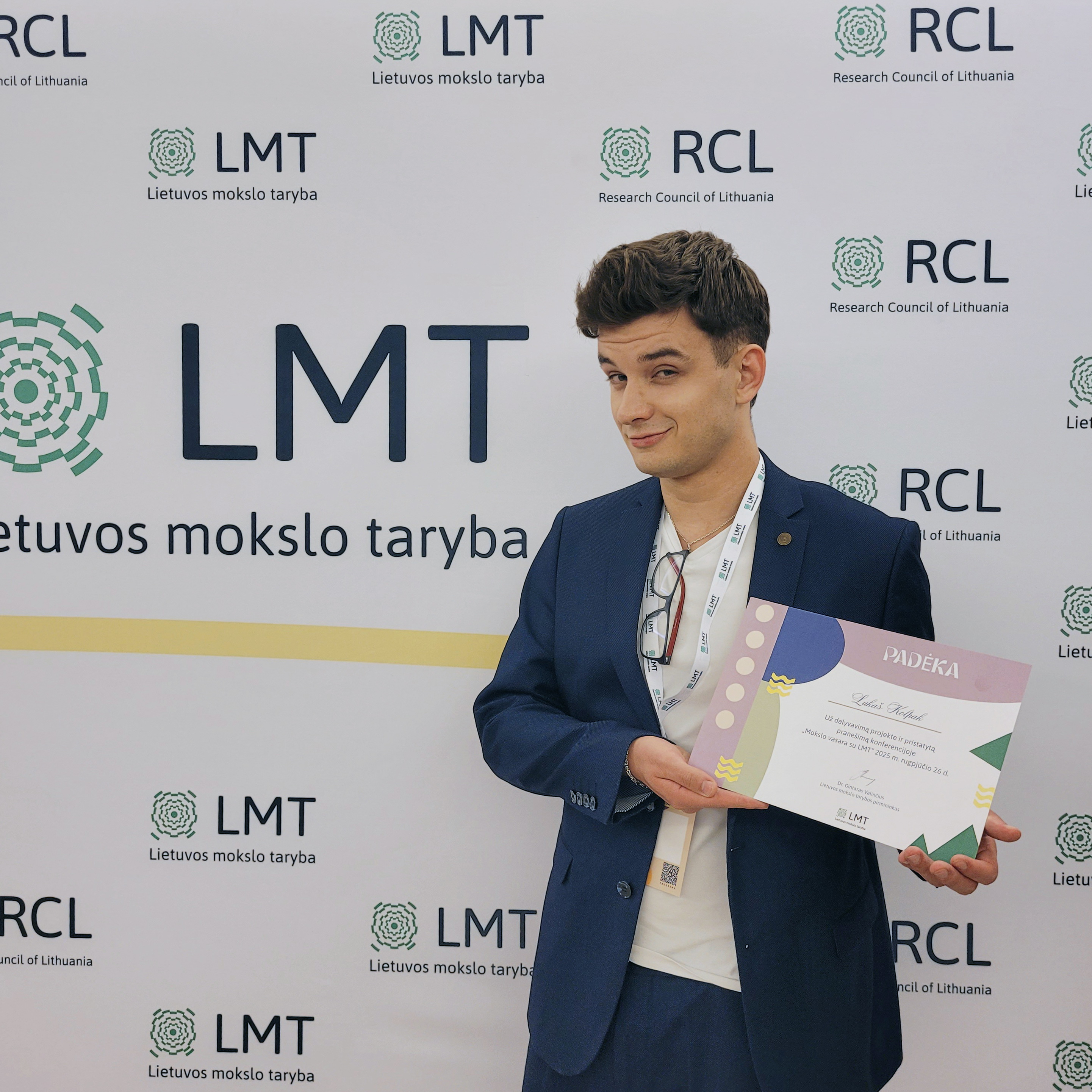 “Summer usually means relaxation, but when a real opportunity arises, it is worth taking advantage of it. This year, I joined the RCL summer scientific internship programme, and it was one of the most valuable academic experiences I have had so far. From the beginning, I got involved in real scientific work: I read scientific literature, tested eye tracking devices, and organised and led focus groups. I was completely immersed, learning through practice and seeing what the entire research process looks like in reality, not just on paper. Looking back, I am very glad that I did not miss this opportunity. I improved my skills, learned a lot of new things, became more established in the academic environment, and took a big step towards new horizons of knowledge. If you ever have such an opportunity, be sure to take advantage of it!” says L. Kolpak.
“Summer usually means relaxation, but when a real opportunity arises, it is worth taking advantage of it. This year, I joined the RCL summer scientific internship programme, and it was one of the most valuable academic experiences I have had so far. From the beginning, I got involved in real scientific work: I read scientific literature, tested eye tracking devices, and organised and led focus groups. I was completely immersed, learning through practice and seeing what the entire research process looks like in reality, not just on paper. Looking back, I am very glad that I did not miss this opportunity. I improved my skills, learned a lot of new things, became more established in the academic environment, and took a big step towards new horizons of knowledge. If you ever have such an opportunity, be sure to take advantage of it!” says L. Kolpak.
More information about the RCL Summer Scientific Internship can be found here: https://lmt.lrv.lt/news/rcl-invites-students-to-try-on-the-role-of-a-researcher-offering-a-wide-range-of-topics-and-summer-scholarships/